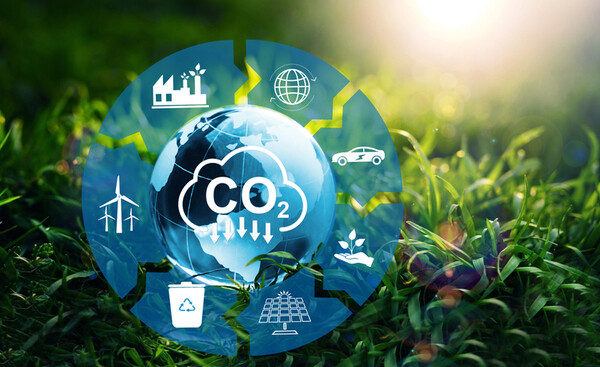
The adage, "Donald Trump is the personification of American capitalism," encapsulates the former U.S. President's embodiment of the core values of American capitalism: money, capital, and profit-driven pursuits. This symbolism permeates his second-term administration's policies, significantly impacting not only economic matters like trade wars but also global climate and environmental policies.
Initially, some optimists believed that climate agendas would remain relatively stable despite Trump's stance. However, his policies have demonstrably hindered global climate crisis responses. The necessity of international cooperation in addressing climate change is paramount, especially given the United States' role as a leading economic power and a major carbon emitter. Its retreat from climate commitments has far-reaching consequences, potentially dampening international resolve.
Furthermore, achieving carbon neutrality demands substantial financial investment in energy transitions, industrial restructuring, and technological advancements. The U.S., as a global economic leader and a significant carbon emitter, bears considerable responsibility in mobilizing these resources. Yet, its withdrawal has stalled global progress, leaving a significant "carbon footprint."
Trump's Environmental Policy Rollbacks and Their Impact on the EU
The European Union (EU), once a vanguard in climate action, is now grappling with the influence of capitalism. Trump's resurgence has seemingly triggered a shift towards relaxed environmental regulations within the EU. Recent discussions within the EU, including the Omnibus Package and the easing of methane emission regulations for U.S. liquefied natural gas (LNG) imports, signal a concession to market forces, even for a region historically prioritizing both economy and environment.
This shift reflects the growing influence of American pragmatism, which prioritizes economic interests over environmental concerns, altering the EU's political priorities. Industry experts argue that Trump's anti-environmental actions, such as withdrawing from the Paris Agreement, dismantling environmental regulations, and promoting fossil fuel industries, have indirectly prompted the EU to strategically reassess its climate policies.
Notably, the European Parliament recently approved the delay of implementing the Corporate Sustainability Reporting Directive (CSRD) and the Corporate Sustainability Due Diligence Directive (CSDDD), part of the EU's Sustainable Omnibus Package. This package aims to streamline ESG regulations, reducing burdens on European businesses. The EU's decision is partly driven by concerns that stringent regulations could undermine European competitiveness, especially in the face of Trump's trade policies.
Trump's trade war threats have heightened fears of adverse impacts on European green product exports, compelling the EU to adjust its environmental policy pace and intensity. Moreover, the EU is considering leveraging environmental regulations as bargaining chips in trade disputes, particularly regarding U.S. LNG imports.
Recent reports indicate that the EU is contemplating relaxing methane emission standards for U.S. LNG to secure increased imports. This move is seen as a strategic response to Trump's demands for fossil fuel purchases and tariff threats. If implemented, U.S. LNG exporters could bypass rigorous verification processes, automatically meeting EU methane emission standards. This contrasts sharply with the EU's previous stance of imposing fines for non-compliance.
The EU's balancing act between energy security and climate leadership is increasingly swayed by Trump's influence.
The U.S. Withdrawal from the Paris Agreement and Its Global Repercussions
Trump's policies have reverberated beyond national borders, impacting international climate cooperation. His re-withdrawal from the Paris Agreement, an international treaty aimed at limiting global warming, exemplifies this. The agreement, adopted in 2015, commits nations to keeping global temperature rise well below 2 degrees Celsius above pre-industrial levels, ideally limiting it to 1.5 degrees Celsius.
Environmentalists criticize the U.S. withdrawal as a significant setback to global climate efforts. The U.S., being the second-largest carbon emitter, plays a crucial role in achieving carbon neutrality. Its absence undermines the agreement's universality, placing additional burdens on remaining signatories.
Moreover, the U.S. withdrawal could trigger a domino effect, potentially leading other nations to reconsider their commitments. Reports suggest that countries like Argentina and Indonesia have contemplated similar moves. While these concerns have yet to materialize, the potential for future defections remains a threat.
Diverging Perspectives: Environmental Advocacy vs. Pragmatic Adaptation
While initial optimism regarding the resilience of global environmental agendas has waned, environmental advocates maintain that climate action transcends political cycles and is a matter of survival. They emphasize that sustainability and carbon neutrality are pivotal for national and corporate competitiveness.
Conversely, some argue for pragmatic adaptation to the shifting global landscape, acknowledging the potential permanence of the retreat from stringent environmental policies. Experts like Choi Seung-shin, CEO of C2S, caution against misinterpreting market trends and advocating for strategies that could lead to significant losses. He argues that the global retreat from environmentalism is rooted in energy crises and inflationary pressures, suggesting that a reversal is unlikely in the short term.
In conclusion, Trump's capitalist influence has significantly impacted global climate efforts, prompting the EU to reassess its environmental priorities. As the world navigates these shifting dynamics, the debate between unwavering environmental advocacy and pragmatic adaptation will continue to shape international climate policy.
[Copyright (c) Global Economic Times. All Rights Reserved.]






























